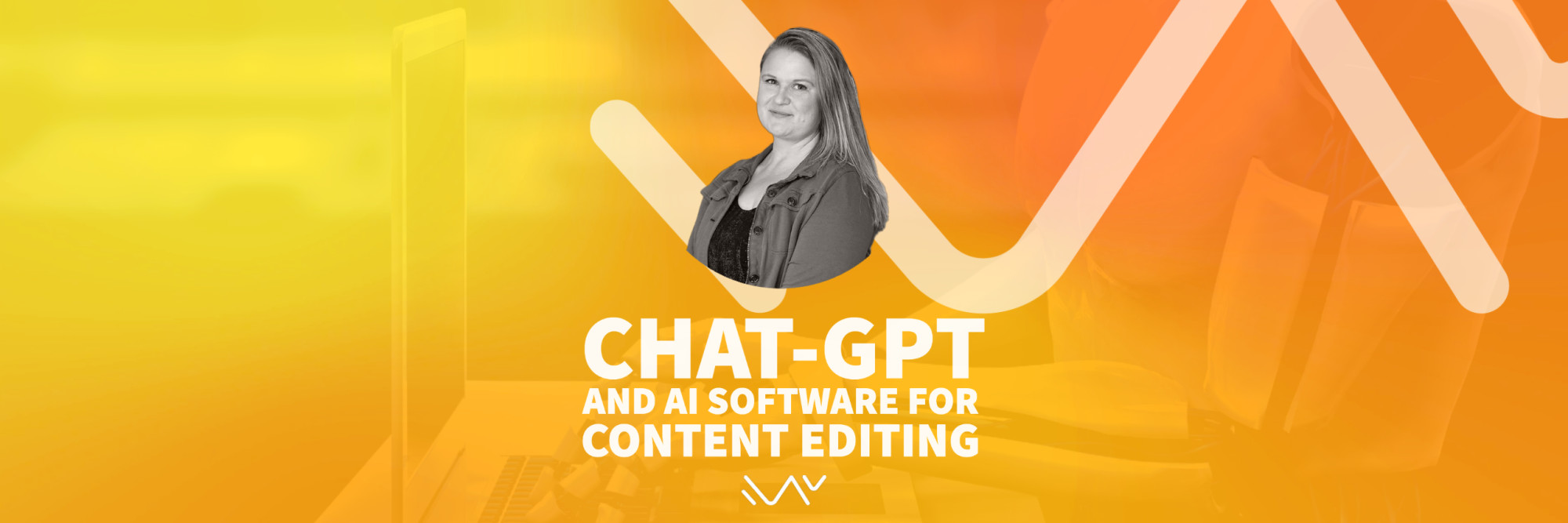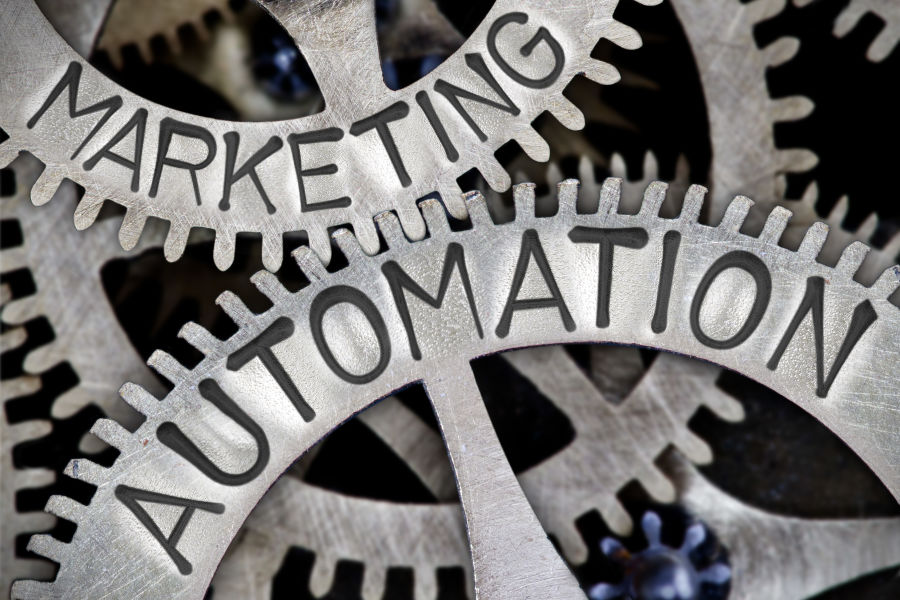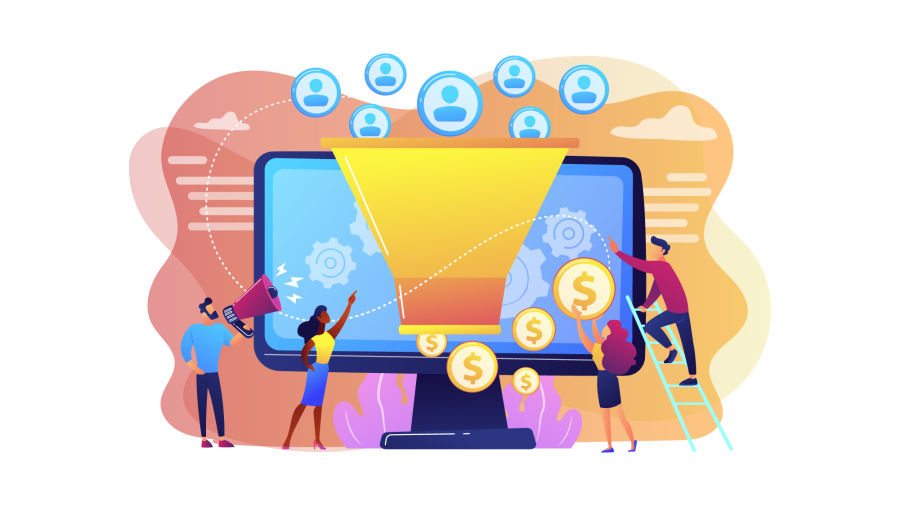//
May 30, 2023
Watermark Water Cooler | ChatGPT and AI Software for Content Editing
Transcript:
(00:02) Hello and welcome to the Watermark WaterCooler. We have Nicole with us here today. Nicole is on our content side. She does all of our content writing. Nicole, you want to introduce yourself? Yep. I’m Nicole Stiverson. I am obviously the copywriter, content writer for Watermark, but I've written professionally in various industries for more than a decade, and I was trained as a journalist.
(00:28) But it's exciting to be able to write on the marketing side and write for the variety of industries that we serve. Yeah. So specifically we want to talk about ChatGPT— Generative Pre-trained Transformer for those people. Yeah, that's what that stands for. What does that mean? That's a great question.
(00:49) A computer that’s learning on its own, basically. But there's all this talk about how that's gone into the content world and writing for people. First of all, what do you think about this? I was a little skeptical when I first heard about ChatGPT. Mainly like it went viral and everyone started using it.
(01:14) And started having conversations with it and, you know, kind of messing around with it. And to be honest, like, I'm pretty old school. I grew up, you know, pre computers and internet and all that stuff. Like, I was telling my kids when I had to write essays, I had to go to the library and check out books and, you know, create a bibliography and source and site.
(01:37) And then obviously being trained as a journalist, making sure, you know, things are correct and double check everything. So when I started hearing about this whole AI generated content, I was pretty nervous. Of course, our agencies started talking about it and we always want to, you know, stay up to date with all of our technologies that make us work smarter, you know, not always work hard, but also smarter and use the tools at our hand to help help us be the best that we can be for our clients.
(02:15) So, I was pretty hesitant when. It was Copy.AI that we started, but we still we still use Copy.AI But Copy.AI was before ChatGPT actually had come out. We were already using that to help with writing content. So it really wasn’t anything new to us when we heard this was coming. I mean, it was just like a bigger wave of conversation, obviously.
(02:38) But, the world was already in tune with it. I feel like, yeah, and Grammarly like, so I was using that already and I maybe I was more accepting of it because of, you know, growing up with like word doc, they have spell checker, they automatically start changing. So I was a little more accepting of that— The paperclip? Yes. That popped up.
(03:01) that floated around and you wanted to like get out of my way. But so maybe that's why it felt easier to use. And even with Copy.AI, when we first brought it up, I was like, but I accepted that. And so then when ChatGPT I was like, what? Write a blog post in 5 minutes? Like when I'm over here, like pouring sweat, blood and tears.
(03:25) into this blog content. The research and all the stuff that you had to do to like write content. Yeah. I mean, it did take a lot of time. And I'm not an expert on every single industry and field that we write in. So, I gave it a whirl and, you know, Copy.AI does have a new chat feature as well, like ChatGPT.
(03:48) A little bit more conversational. Yeah. Asking it questions. And so yeah, I, I feel differently about it now. I don't feel like it's cheating. I felt like you can use it as a tool to help you, but I under one caveat is that, you know, the computer is program or software is only as good as the human behind it.
(04:17) And it's how we translate that information and take that information to give to other humans, not just random, you know, bots out there. But so I feel very strongly that, you know, our is a AI generated content going to be taking over the copywriting world and we're all going to be out of a job. Like I don't think that is going to be the case because I think using it as a tool to help you be more efficient and and especially to help combat writer's block, which is huge as any writer knows.
(04:55) You know, when you're writing all day, every day, trying to be creative, sometimes you just hit a wall and it does definitely help with that. Yeah. Hey, sorry for interrupting your video. I'm Cameron, vice president of Watermark, and I wanted to tell you a little bit about our CRM learning tool. We just developed it. It’s free for you all.
(05:15) The link is in the description below. We're going to cover things like utilization of the CRM, automating those mundane tasks you have to take care of every day, you know, hitting those sales numbers. If those are things you're struggling with, jump on over there. We're going to learn together.
(05:29) We'll see you there. Yeah, I mean, I think the thing that's crazy about what's happened with this is that it happened so fast. One part of it and I think it's okay to be skeptical about some of the stuff like I think that's a that's a good way to approach it is it's not the answer to all things.
(05:52) And again, like you said, we are writing to other humans too. So it's like a starting point. Yeah. Great. But a final buttoned up piece, maybe, maybe not so much. And I know we've seen the errors inside of, you know, that information is not 100% correct. Or, you know, that doesn't sound very human like whatever that may be.
(06:18) Yeah. I read a blog post of a content writer who said, I mean the title or the subtitle was it took ChatGPT 5 minutes to write this blog post. And then I took 3 hours editing it. Because it's a writer and as writers, I'm sure anyone could relate is, you know, we we if our name is on something like we want to be a good job and good information.
(06:45) So I guess my biggest advice is, yes, like use it to your advantage, but don't rely on it as it at the all be all. It's really great for that repetitive kind of redundant copy, like ad copy. Create different varieties for saying this tagline, this logo. Different ways. Right? But when it comes to creating long form content like white papers and case studies, it really needs that understanding of who the audience is, who your client is, and just have that human element to it is really important.
(07:22) I think the other thing that is important to this is like something has to prompt you to write it. So there has to be that person that's prompting it properly to spit out the right thing. Yep. So it's not it's not just editing it afterwards, it's also like, how are you prompting it properly? Yep.
(07:38) And will be actually coming out with a blog in May also talking about how to properly use it because I mean, you can mess around with it and ask it all kinds of things, but it's again, at the end of the day, it's a computer pulling from in for like limited information. And it's not always going to be correct.
(07:58) It's not always going to really convey what you want it to convey. And there's been many times I'm like, no, I that's not what I want to say, but it also inspires me to be like, but I want to say it like this. Yeah. So it's it's good you get to use it, but don't rely on it for everything.
(08:17) There, there is. Speaking about reliability, there's a great story of this prosecutor who was on the news and he was like, you know, ChatGPT is saying I was the one who committed the crime. And I was actually the prosecutor who was prosecuting it. So it like has this opposite view of what was actually happening in like a true story.
(08:39) So that's kind of scary also like, yeah, you know, if you're not checking that source, is it actually accurate or is it saying something that's, you know, it's trying to manipulate, I guess is maybe not the right word, but trying to decipher what's happening. And it has no like it doesn't know right from wrong.
(09:03) It has no bias. Right. It has no right from wrong. So it's like I think this is right so I'm going to say it. Well, you're actually there's a human on the other side of that that you might be effecting in if you took that and just put it out into the world. Now you've got some false information going out there.
(09:18) That's that's not good. So you got to be careful. Yep. And it's that common sense and checking checks and balances. Check your sources no matter what. Not everything you read on the internet is true. Not everything that a robot will say is true either. It kind of reminds me of the scene in the really old Willy Wonka and the Chocolate Factory where, you know, the Wonka vision and there's all these little pieces floating around in the air and it's trying to grab and put it back together and sometimes it's wrong.
(09:49) So again, we need that human mind to decipher what it is you are, in our case, you know, marketing, your client is trying to convey who's the target audience. And you know, there's limitations. ChatGPT says right on their home page, like it has limited information up to maybe 2021. So, I mean, I know it's going to change.
(10:14) There's AI for a lot of different things like design and video and all these things. And again, those can be great to use as tools, but we are still humans marketing to humans and. Right. Well, okay, so we talk about a lot of things I know that are a lot more than we talk about. There's a blog that we have coming out about prompting and how to use ChatGPT properly.
(10:39) But I, I have. Do you have any like special things that you would say to our audiences, like, hey, the takeaways for use of maybe even, you know, things not to do. Yeah, I think we talked about things not to do of just kind of the more generic your prompt is, the more generic your content will be. So be very specific and use words like create compelling and engaging content that will reach the target audience of parents with teenagers or something very specific so it can pull as much as it can from what your.
(11:27) It can't read your mind and then the who, what, when, where why like that's a great like starting point like you put those things in, we're going to get a little bit better response. Yeah. Don’t worry about your grammar and all that stuff. If sometimes it's like, just get it out and you're like, I have all this stuff in my mind? I have no idea how I'm going to say this, but I just need to get it out.
(11:51) Just kind of like word vomit into ChatGPT and that'll come up with something. And again, don't take it face value, read it and be like, Oh yeah, I can say it like this. Like I'll say it like that. So I'd say it's more of like a muse. Yeah. A starting point. Yeah. And Yeah I, I do really like it to work smarter, not necessarily harder.
(12:15) Yeah. Yeah. And so I think the end of that was that, you know, AI is not going to take over the world anytime soon. Wall-E just like recently that’s what’s coming to my mind is like Wall-E when all these people are just like up in space just floating and all the robots are doing everything for them. And it's like, is that what we are going to become? Is this the beginning of that? But anyways, but the key of Wall-E at the end is that you still need humans.
(12:51) Yes, right, right. We can. So let's work together and work in harmony and help each other out the best we can, but always with a little bit of skepticism and double check your facts. Totally. Thanks, Nicole, for joining us. Check out that blog. As always, if there's anything you'd like to see on the show, vlog, let us know.
(13:15) We would love to create content for you. Until next time. Thank you so much for watching and subscribing to the Watermark WaterCooler. We value your opinion and want to deliver the best content possible. To do that, we need your comments and feedback. What do you want to see or learn? Tools? Techniques? Behind the scenes? Comment below and make your idea our next video.







